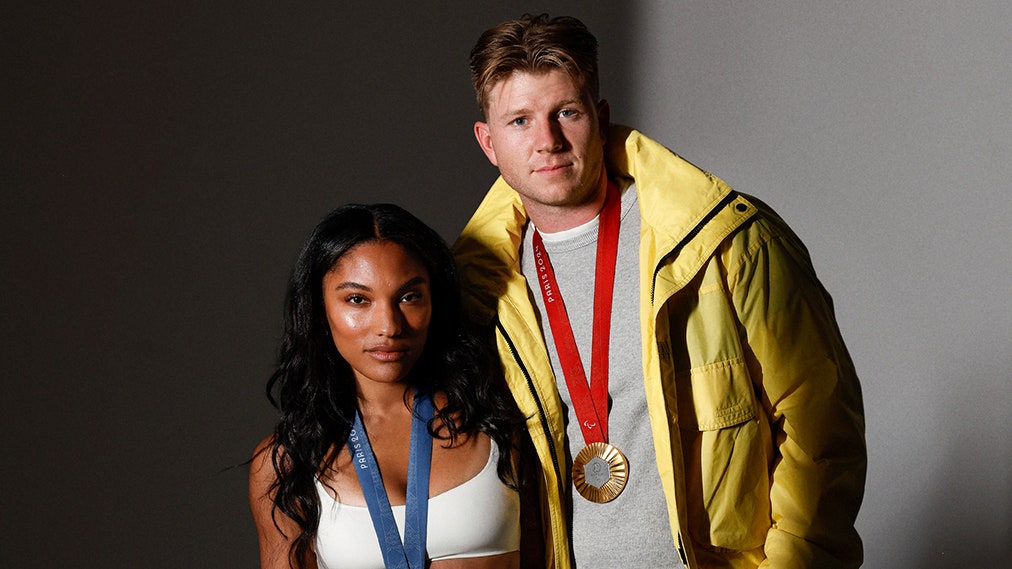Technically they live in Kansas, where Tara is a Kansas State University track coach post-Olympics. But since returning from Paris they’ve been almost exclusively living out of their suitcases. There are appearances to make, hands to shake—Hunter lights up when talking about meeting Tim Cook during their recent trip to Apple headquarters—and opportunities to capitalize on.
They don’t mind the rush, because they get to do it together. That’s what they’ve been doing since they first met in high school, at a track meet in Idaho. Tara, born in Texas and raised in California, and Hunter, who grew up in Utah, knew they were right for each other. “I just knew I wanted to progress my life with him,” Tara says.
As Hunter remembers it, he had just finished a race when Tara swaggered over “in front of everybody” to congratulate him. “I said, ‘I don’t know why I have to do this, but I have to hug you,’” Tara remembers. If their meet-cute was old-fashioned, they reconnected in more modern fashion: Back home after the meet, Hunter sent out a late-night tweet, which caught Tara’s eye. “She slid in, and was like, ‘What are you still doing awake?’ And I was like, ‘All right, game on,’” he says, smirking. Tara says he was ready with a response: “He [said], ‘Waiting for you to text me,’ or something like that.” (“It was very high-school-esque,” Hunter accepts.)
To spend even a few minutes with them is to realize that, in some ways, theirs is an incredibly unique situation: They are an interracial couple where one person is nondisabled and the other is a double amputee. (When asked how her family handled meeting Hunter for the first time, Tara shrugs and says their reaction was “Leave it to you to bring home a white boy with no legs.”) In other ways, though, their relationship is indistinguishable from those of many of their Gen Z peers. In 2017, they launched a shared YouTube channel, where they have posted videos about buying a home and the craziness of Olympic trials to their nearly 1 million subscribers, and maintain both individual and joint TikTok accounts.
This is not because they have some insatiable desire to be famous, but rather because of a harsh reality: One of the challenges of being a track athlete is that your sport only garners true mainstream attention for roughly 10 days every four years before being banished to obscurity again. And their disciplines aren’t exactly the moneymaking ones. “For us specifically, a long jumper and a Paralympian, there’s no money,” Hunter says. “Teacher salaries,” Tara adds. A gold medal, Hunter explains, earns an athlete a $37,500 bonus from the USA’s Olympic governing body, and $50,000 from the World Athletic Olympic Committee. But there’s a catch. “I didn’t get the $50,000, because the Paralympics doesn’t pay that,” he says. “So I made thirty-seven-five. That’s it.”

